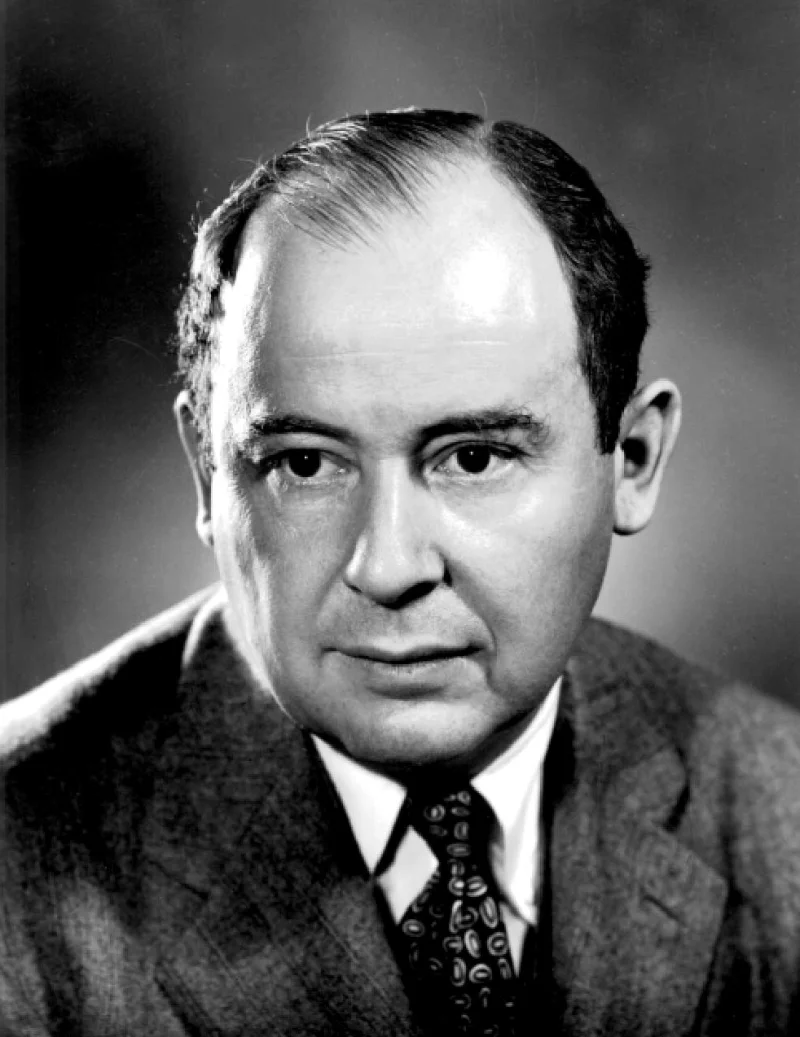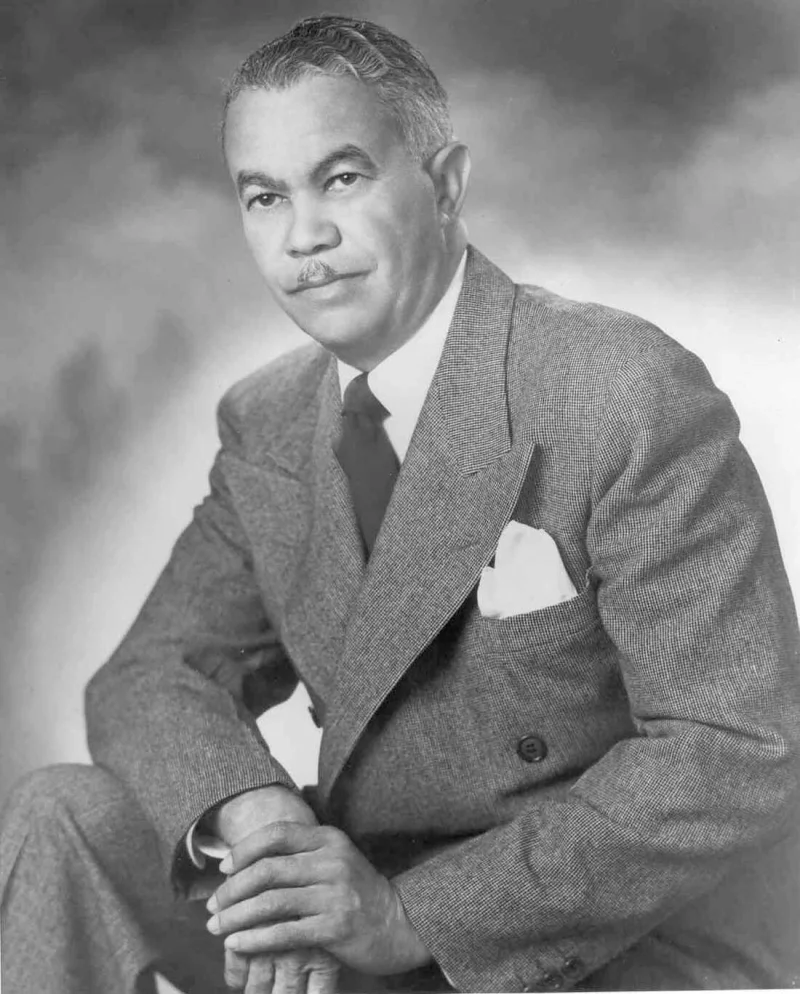Short Summary
John von Neumann was a Hungarian-American mathematician, physicist, and polymath whose work spanned various fields, including mathematics, physics, economics, and computer science. He is renowned for his development of game theory, contributions to the Manhattan Project, and laying the groundwork for digital computing architecture. Von Neumann's intellectual prowess and groundbreaking theories have left a lasting impact on both theoretical and applied sciences, making him one of the most influential figures of the 20th century.
Early Life & Education
Born on December 28, 1903, in Budapest, Austria-Hungary, John von Neumann was the eldest of three children in a wealthy Jewish family. His father, Max Neumann, was a banker, and his mother, Margit Kann, provided a nurturing home environment. Displaying prodigious talent in mathematics from an early age, von Neumann was educated by private tutors before attending the Lutheran Gymnasium in Budapest. He later studied chemical engineering at ETH Zurich while simultaneously pursuing a Ph.D. in mathematics, which he completed in 1926 at the University of Budapest. His early education and varied academic pursuits laid the foundation for his interdisciplinary career.
Career Highlights
Von Neumann's career was marked by significant contributions across multiple disciplines. He initially worked on set theory and quantum mechanics, which garnered him international recognition. In the 1930s, he joined the faculty at the Institute for Advanced Study in Princeton, where he collaborated with other prominent scientists. During World War II, he contributed to the Manhattan Project, applying his expertise in mathematics to the development of nuclear weapons. After the war, he played a pivotal role in the development of computer technology, formulating the concept of a stored-program computer, known as the von Neumann architecture, which remains fundamental to modern computing.
Major Achievements
- Developed game theory, providing a mathematical framework for analyzing competitive situations.
- Contributed to the Manhattan Project, aiding in the development of nuclear weapons during World War II.
- Formulated the concept of the stored-program computer, influencing the design of modern computers.
- Advanced quantum mechanics with the introduction of von Neumann algebras and the mathematical formulation of quantum theory.
- Published "Theory of Games and Economic Behavior," significantly impacting economics and strategic thinking.
Famous Quotes
- "In mathematics, you don't understand things. You just get used to them."
- "There's no sense in being precise when you don't even know what you're talking about."
Interesting Facts
- He was fluent in several languages, including German, Hungarian, English, and French.
- He was known for his exceptional memory, able to recall entire books word for word.
- Von Neumann was one of the original six mathematicians at the Institute for Advanced Study.
- He received the Medal for Merit from the United States in 1946 for his wartime contributions.
- He was a pioneer in the field of cellular automata, which influenced later developments in computational theory.
Legacy / Influence
John von Neumann's contributions have profoundly influenced mathematics, physics, economics, and computer science. His formulation of computer architecture remains foundational to modern computing systems, and his ideas in game theory have permeated various fields, including economics, political science, and beyond. His interdisciplinary approach and innovative thinking continue to inspire researchers and scholars worldwide.
FAQ
Q: Why is John von Neumann famous?
A: He is famous for his pioneering work in mathematics, computer science, and his contributions to the Manhattan Project.
Q: What is von Neumann architecture?
A: It is a computer architecture model that describes a system where the data and programs are stored in the same memory space.
Q: What did John von Neumann contribute to economics?
A: He developed game theory, which provides a mathematical framework for analyzing competitive situations.
Q: Did von Neumann work on quantum mechanics?
A: Yes, he made significant contributions to quantum mechanics, introducing von Neumann algebras and formalizing the mathematical framework of quantum theory.












